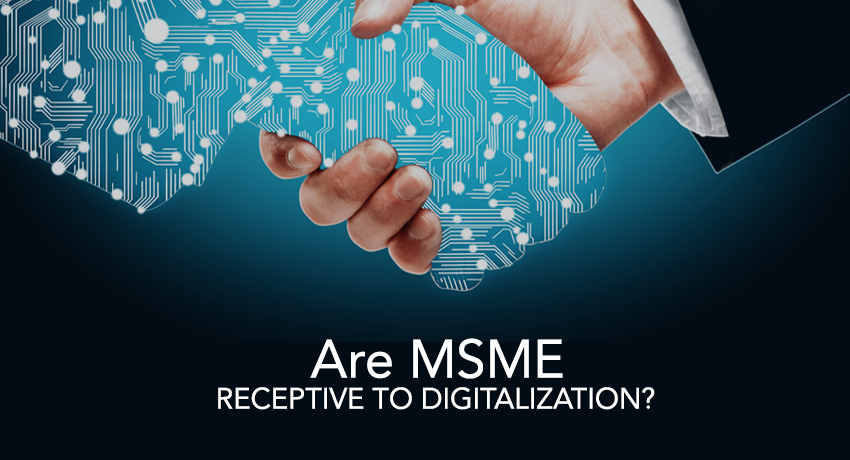Are MSMEs receptive to digitalization?

Digitalization has technically taken every domain by storm however, the area of interest for us is the MSME (micro, small, and medium enterprises) market. MSMEs have varied levels of receptivity to digitalization, but there has been a growing trend toward digital adoption in recent years. Many MSMEs have recognized the benefits of digitalization, such as increased efficiency, improved productivity, cost savings and expanded market reach.
The level of receptivity to digitalization can depend on factors such as the size of the business, industry and location. Smaller MSMEs may have limited resources to invest in digital technologies or may lack the necessary skills and knowledge to implement them effectively. In addition, some traditional businesses may be resistant to change or may not see the value in adopting new technologies.
Nevertheless, there has been a significant increase in digitalization among MSMEs due to the COVID-19 pandemic, which has accelerated the adoption of digital technologies as a means to stay afloat and remain competitive. Governments and industry bodies have also been actively promoting digitalization through various initiatives and incentives, further encouraging MSMEs to embrace digital technologies.
Government initiatives
Digital MSME Scheme – The government launched the Digital MSME Scheme in 2018 to encourage the adoption of digital technologies among MSMEs. Under this scheme, MSMEs can get access to cloud computing, e-commerce and other digital tools at a subsidized rate.
For instance, small businesses under the digital scheme get financial assistance ranging between 15 Lakhs to 1 Crore.
Udyog Aadhaar Memorandum (UAM) – The UAM is a one-page registration form that MSMEs can use to register online. This has made it easier for MSMEs to get registered and take advantage of various government schemes and incentives.
As of January 17, 2022, 66,34,006 enterprises are registered on the Udyam portal out of which 62,79,858 are Micro (94.6%), 3,19,793 are small and 34,355 are medium enterprises.
Technology and Quality Upgradation Support – The government provides financial assistance to MSMEs to upgrade their technology and improve the quality of their products. This support covers areas such as product design, testing and certification.
For instance, financial support is given to MSMEs who fall under ZED Certification Scheme (supporting the ‘Make in India’ initiative). Under this scheme, the Government provides upto 80% subsidy to MSMEs.
Digital India Program – The Digital India Program is an initiative launched by the government to transform India into a digitally empowered society and knowledge economy. The program has several components that specifically target MSMEs, such as the Common Service Centres (CSCs) that provide digital services to citizens, including MSMEs.
Startup India – The Startup India program aims to promote entrepreneurship and innovation in India. The program provides various incentives and support to startups, including MSMEs, to help them grow and scale their businesses using digital technologies.
Under this scheme, eligible startups can be exempted from paying income tax for 3 consecutive financial years out of their first 10 years since incorporation.
With several schemes, initiatives and incentives put in place, it is safe to say that the MSMEs have been reciprocating well to be brought under the ‘digitized’ realm. With each step taken by the government, financial institutions and businesses, the vision of making India digital-first seem achievable.
For businesses, it is about leveraging the schemes and initiatives to remain competitive in the market however, the intention is also serving them with growth through technology!

